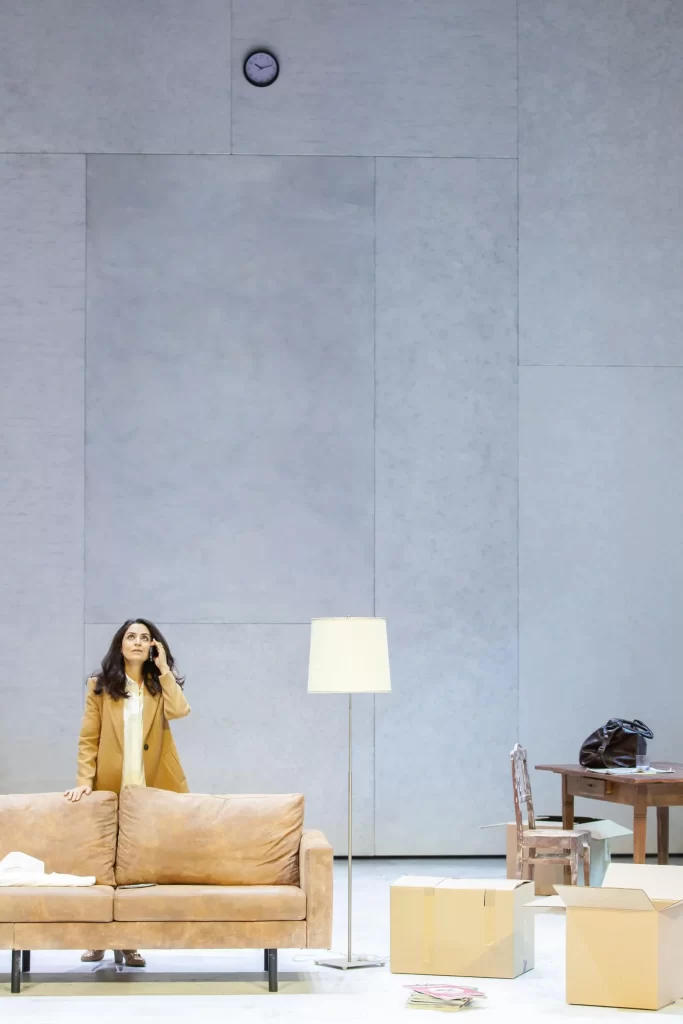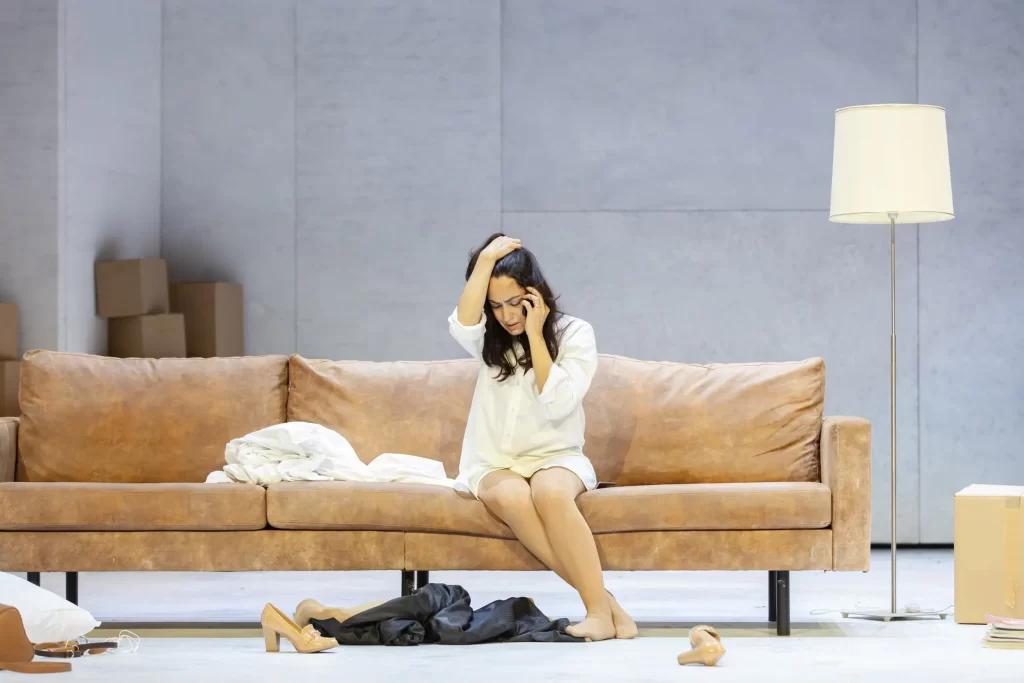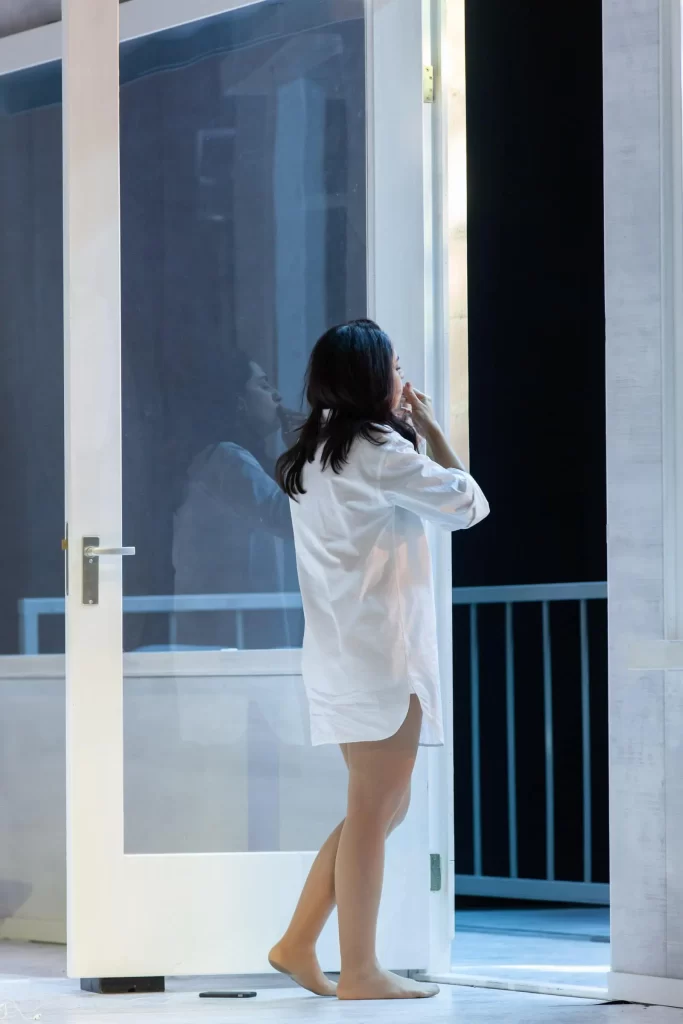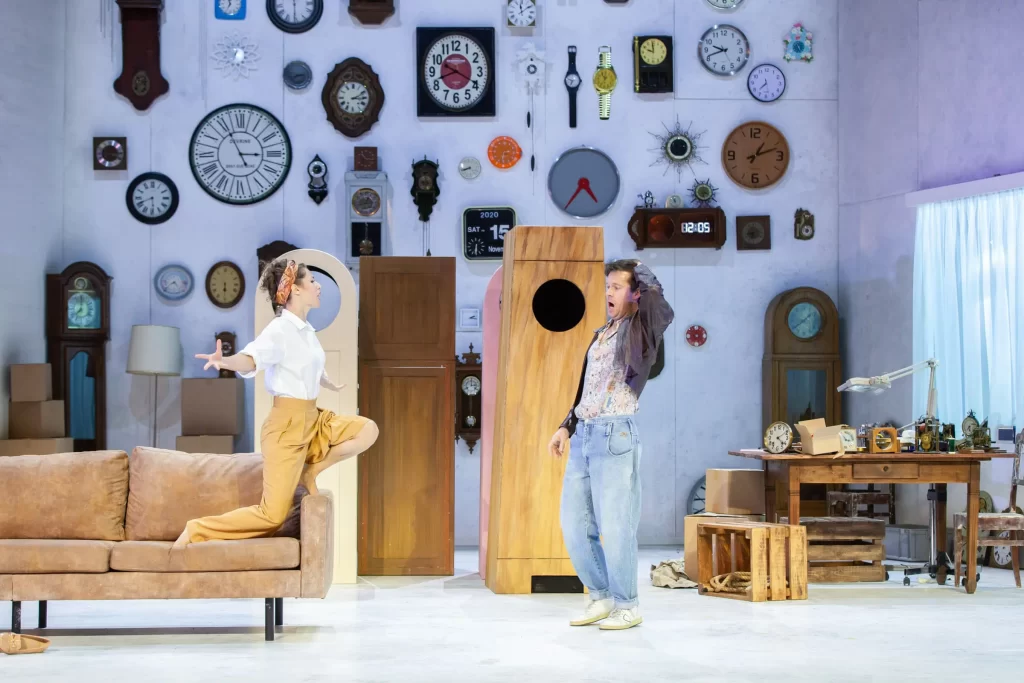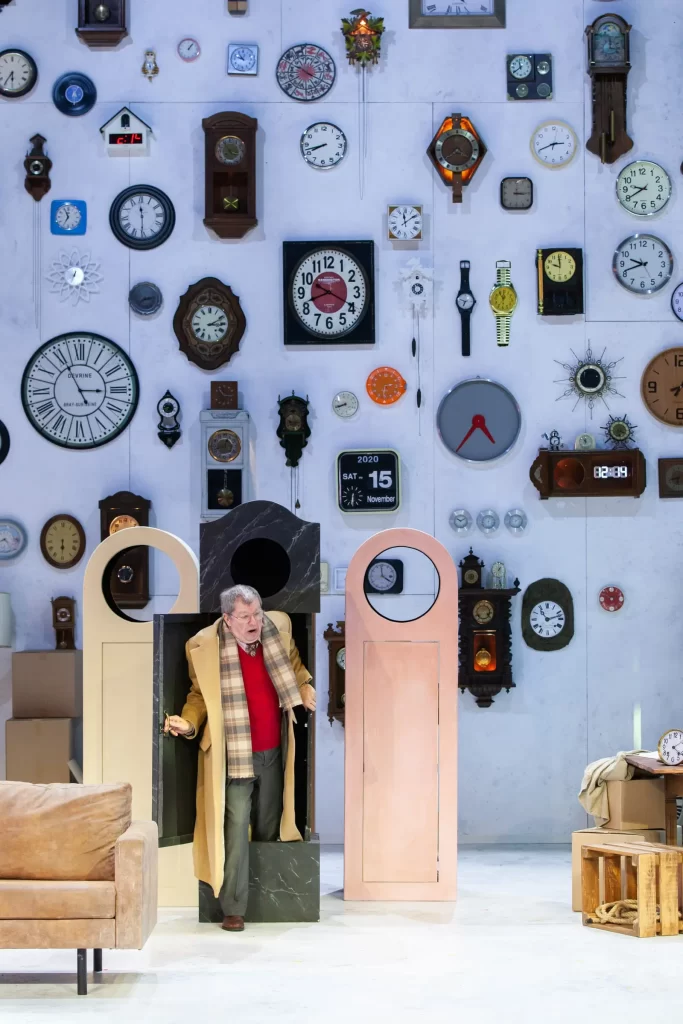Info
Two women crave for love. One wants her lover back, the other is cheating. Plays with sensual or social subjects were fashionable in the early twentieth century. Also with the most important French composers of the time. Francis Poulenc and Maurice Ravel set two famous pieces to music.
In Jean Cocteau’s one-act play La voix humaine, a woman calls her ex-lover. She can’t let go of him. She flatters, despairs and blackmails in the hope that he will not disconnect the phone. With orchestral colors and singing style, Poulenc shows the power of Cocteau’s text. From the impatient waiting for an answer from the man, through the blissful memories to the desolate end.
Spending time with your lover means a ‘Spanish hour’ in the vernacular. Franc-Nohain’s comic play L’heure espagnole is all about those hours. We are visiting a clockmaker couple. Torquemada is a somewhat dull husband, Concepción a fiery Spanish one. Can the secret lovers satisfy Concepción’s hunger? Ravel, himself of Basque-French origin, shows his fascination for Spanish music and culture in this opera. Sounds evoke images of ticking clocks and Spanish dances.
For director Béatrice Lachaussée, the one-act plays are two sides of the same coin. ‘In both operas, the emotional development of a woman is central. In the first part she seems mainly to be a victim. Concepción enjoys life, but she too runs into a wall of frustrations and unfulfilled desires.”
La voix humaine / L’heure espagnole are performed in French with Dutch subtitles.
Download here the program booklet.
La voix humaine/L’heure espagnole is a co-production with NOF – Nouvel Opéra de Fribourg, Switzerland.

